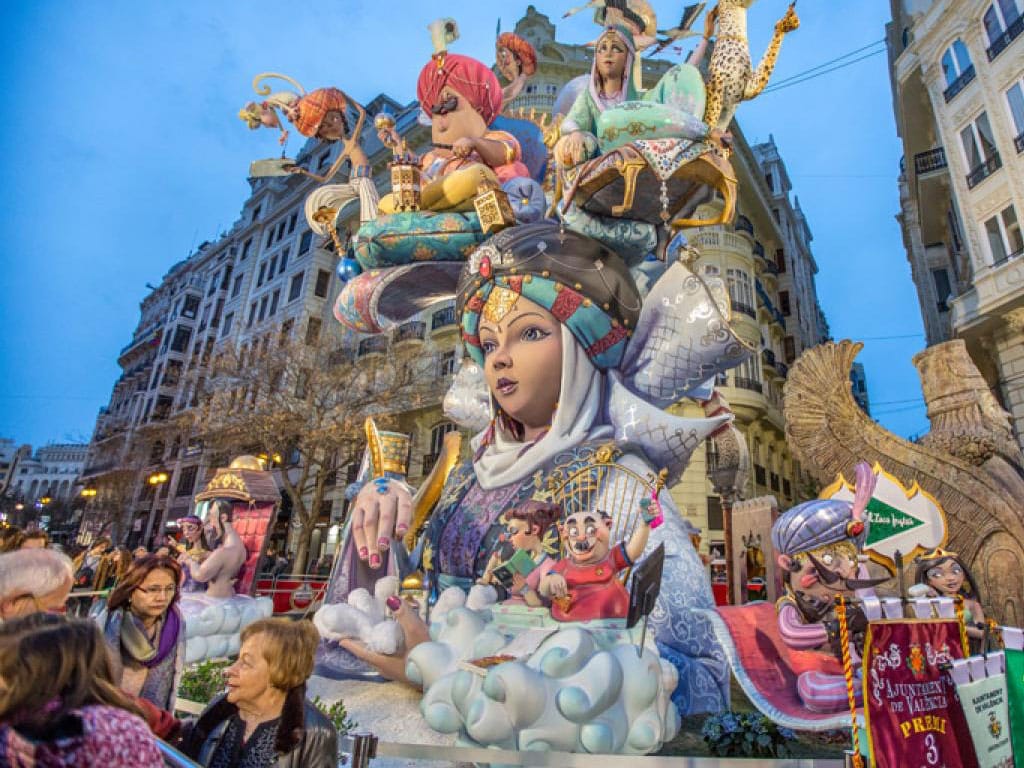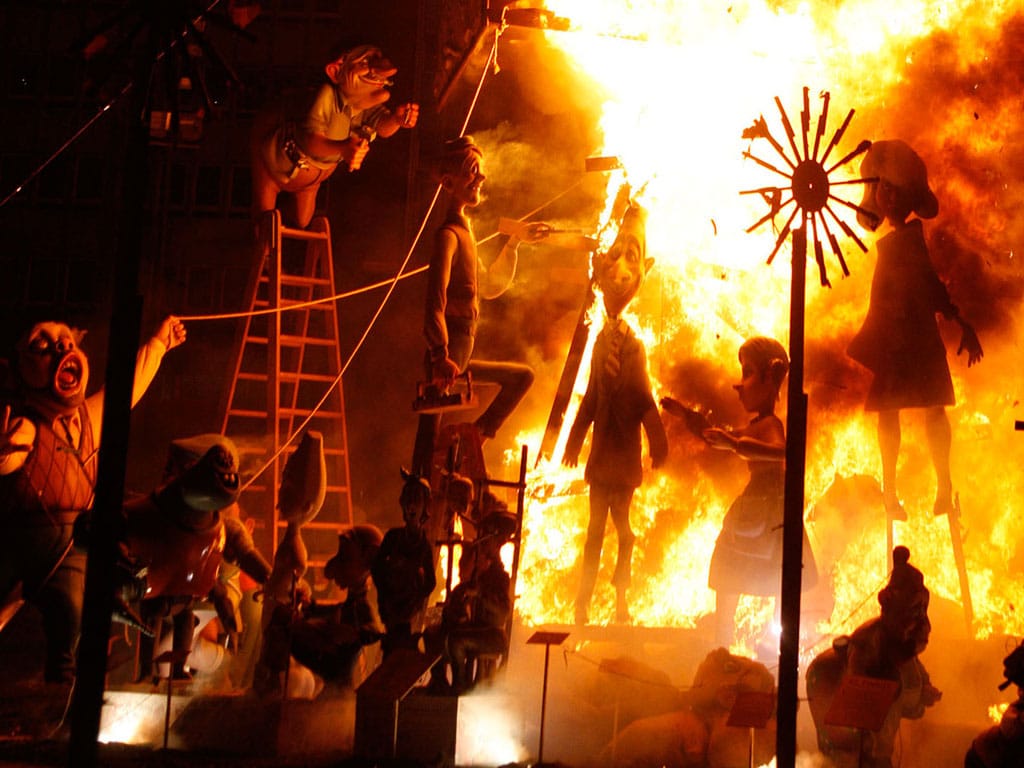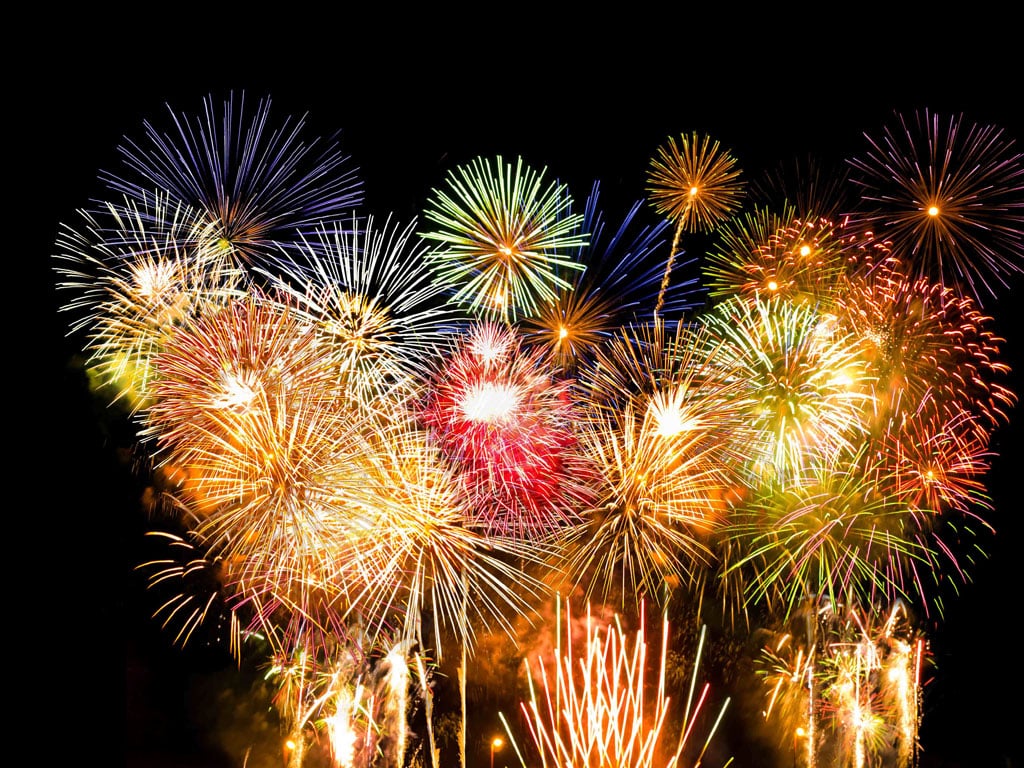Discover the history of the Fallas de Valencia

Discover the History of Fallas de Valencia
Fallas de Valencia is a captivating and culturally rich tradition that has been an integral part of the Valencian culture for centuries. This remarkable festival is a unique blend of art, history, and celebration, filled with vibrant colors, magnificent sculptures, and the mesmerizing glow of bonfires. Let's delve into the intriguing history of Fallas de Valencia and explore the origins, festival traditions, and its profound impact on the region.
Fallas de Valencia is also a celebration that transcends language and cultural barriers. It is a universal language of joy, unity, and the indomitable spirit of humanity. It reminds us that despite the ephemeral nature of life, we have the power to create beauty, to forge connections, and to celebrate the essence of our shared existence.
So, embark on this emotional journey, discover the history of Fallas de Valencia, and let it leave an everlasting imprint on your heart. Witness the burning of the fallas, feel the surge of emotions, and emerge transformed, carrying with you the memories and the inspiration that only Fallas de Valencia can provide.
Origins of Fallas de Valencia
The roots of Fallas de Valencia can be traced back to the Middle Ages when carpenters would burn their wooden candle holders, known as "parots," on the eve of the Feast of Saint Joseph, the patron saint of carpenters. Over time, this simple act evolved into an elaborate festival celebrating the arrival of spring and the end of winter. The festival gained popularity among the Valencian community, and the Fallas de Valencia emerged as a remarkable tradition that continues to thrive today.
The Fallas Festival
The Fallas Festival, also known as "Las Fallas," takes place every year from the 15th to the 19th of March in Valencia, Spain. This five-day extravaganza immerses the city in a vibrant atmosphere filled with music, dance, parades, and a sense of unbridled joy. Thousands of locals and tourists gather to witness the magnificence of the fallas, which are the main attractions of the festival.
Building the Fallas
The construction of the fallas is a meticulous and time-consuming process that involves skilled artisans known as Fallers Artists. These talented individuals create enormous sculptures made of wood, cardboard, papier-mâché, and other materials. Each falla tells a story, often with a satirical or political theme. These towering structures can reach heights of up to 30 meters and are adorned with intricate details, captivating the imagination of all who lay eyes upon them.
Fallas Competition
During the Fallas Festival, a highly anticipated competition takes place to determine the best fallas. A panel of judges evaluates each falla based on criteria such as creativity, craftsmanship, and overall artistic impression. Various categories, including the Special Section and different neighborhoods, compete for prestigious awards. The winners receive recognition and admiration for their outstanding creations.
Lighting and Fireworks
As night falls, the city of Valencia transforms into a mesmerizing spectacle of lights and fireworks. The fallas are beautifully illuminated, creating a surreal ambiance that captivates visitors. The night sky comes alive with dazzling fireworks displays, adding a sense of magic and wonder to the festival. The combination of the illuminated fallas and the vibrant explosions of colors in the sky creates an awe-inspiring experience that touches the hearts of those present.
La Crema - The Burning of the Fallas

The grand finale of the Fallas Festival is known as "La Crema," which translates to "The Burning." On the night of March 19th, the fallas are set ablaze, filling the air with the scent of burning wood and the crackling sounds of flames. This symbolic act represents the transient nature of life, as the carefully crafted sculptures are consumed by the fire. It is a bittersweet moment, as the artistry and beauty of the fallas are transformed into ashes, leaving behind only memories and the anticipation of the next year's creations.
Impact of Fallas de Valencia
Fallas de Valencia holds immense cultural significance for the people of Valencia. It serves as a powerful reminder of their heritage, bringing communities together and strengthening their sense of identity. The festival also has a significant economic impact on the region, attracting thousands of tourists from all over the world. Hotels, restaurants, and local businesses thrive during the festival, contributing to the overall prosperity of the city.
International Recognition
In recognition of its cultural value, Fallas de Valencia was proclaimed as Intangible Cultural Heritage by UNESCO in 2016. This prestigious acknowledgment highlights the global significance of this unique festival and its enduring importance in preserving and promoting cultural diversity.

In conclusion, Fallas de Valencia is a testament to the rich history and vibrant culture of the Valencian people. This captivating festival, with its breathtaking fallas, lively celebrations, and the symbolic burning of the sculptures, has become an integral part of the city's identity. The emotional impact it evokes in both locals and visitors is a testament to its power to connect people, celebrate tradition, and inspire a sense of wonder. Fallas de Valencia is a true masterpiece of art, history, and emotion, leaving an indelible mark on all who experience its magic.
FAQs
- When does the Fallas Festival take place in Valencia?
The Fallas Festival in Valencia takes place from the 15th to the 19th of March every year. - Can I visit Fallas de Valencia as a tourist?
Absolutely! Fallas de Valencia welcomes tourists from all over the world. It is a unique opportunity to immerse yourself in the rich culture and traditions of Valencia. - How are the fallas constructed?
Skilled artisans called Fallers Artists construct the fallas using materials like wood, cardboard, and papier-mâché. These sculptures are meticulously craft and can reach impressive heights. - What is the significance of burning the fallas?
Burning the fallas, known as "La Crema," represents a symbolic renewal, letting go of the past and embracing new beginnings. It is a poignant reminder of the impermanence of life and the need to appreciate each moment. - Are there any special rituals or customs during Fallas de Valencia?
One of the most important rituals is the offering of flowers to the Virgin Mary. Falleros and falleras, dressed in traditional attire, carry flowers to create an elaborate floral display in honor of the Virgin. - Is it necessary to book accommodation in advance during Fallas de Valencia?
Yes, due to the popularity of Fallas de Valencia, it is recommended to book accommodation well in advance to ensure availability. - How can I make the most of my visit to Fallas de Valencia?
To make the most of your visit, immerse yourself in the festivities, explore the various fallas scattered throughout the city, attend the parades and events, indulge in the local cuisine, and connect with the locals to fully experience the essence of Fallas de Valencia. - Are there any safety precautions during the burning of the fallas?
Yes, safety measures are in place to ensure the well-being of attendees during the burning of the fallas. Authorities and organizers work together to create a controlled environment and to guarantee the safety of all participants. - What other cultural events are associated with Fallas de Valencia?
Alongside the fallas, Fallas de Valencia features a variety of cultural events such as parades, traditional dances, concerts, and fireworks displays. These events add to the overall festive atmosphere and provide additional opportunities to immerse oneself in Valencian culture. - Why is Fallas de Valencia important to the people of Valencia?
Fallas de Valencia is an integral part of the Valencian culture and serves as a symbol of their heritage. It brings communities together, strengthens their sense of identity, and contributes to the local economy through tourism. - Has Fallas de Valencia received any international recognition?
Yes, Fallas de Valencia was recognized as Intangible Cultural Heritage by UNESCO in 2016, highlighting its global significance and cultural value.